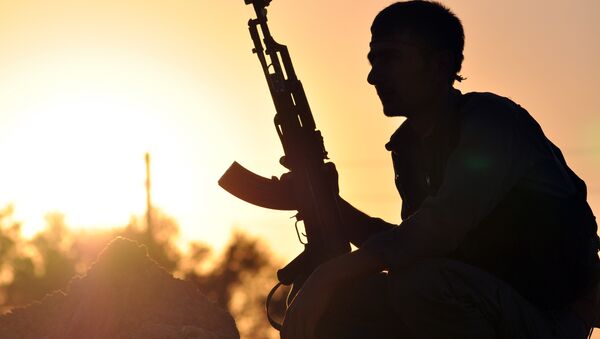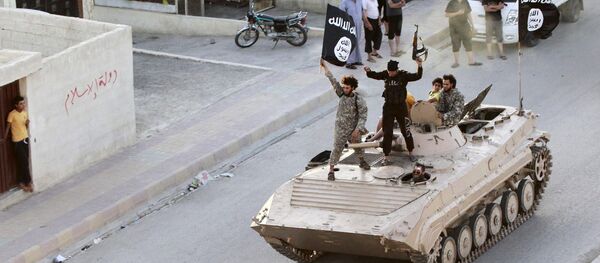"Regarding the decision to liberate Raqqa and storm it, the matter is decided and at the start of the month of April the military operation will begin," he told Reuters.
"We believe that liberating Raqqa will not take more than a number of weeks," he added.
Raqqa is currently encircled by the Russia-backed Syrian army on the west and the south and by Kurdish forces in the north.
Hemo's statement does not correspond with the message from Washington, DC.
According to Navy Captain Jeff Davis, a Pentagon spokesman, US officials "have not made any decisions on how and when we will move in for the liberation of Raqqa."
Davis also refused to make any assessments as to how long this offensive might take. When asked about Hemo's estimation of "few weeks," Davis pointed out that Daesh had more than enough time to turn the city into a fortress, rigged with all kinds of traps, explosives and other forms of makeshift urban guerilla warfare.
"All of these things await whoever moves in to ultimately liberate Raqqa. And if you compare it to other similar-sized cities in Iraq, you've seen that these things do tend to take a bit more time than that," he said, most likely referring to the troubled offensive on Mosul.
Hemo's statement could be seen as an attempt to push the US, forcing their hand on the offensive, as American determination to become more involved in Syria has visibly diminished recently, for a number of reasons.
On March 16th, Turkish Foreign Minister Mevlut Cavushoglu observed that "there are different stances within the US administration" on the matter of military cooperation with the YPG.
"Right now, they do not have a clear stance on this. They are going through a transition period," he noted.
Turkey itself has long opposed empowering the Kurds, and the Kurdish question threatens to split the US-led NATO coalition and the US and Turkey in particular. While Kurds have proven to be very effective fighters, Turkey sees the YPG as a threat to its own territorial integrity. The US must now balance maintaining its international friendships and actually winning the war.
In the meantime, the Russia-backed Syrian army has mastered the "lightning advance through Daesh-held areas," according to Reuters. The report notes that while Kurds are at odds with Syrian president Bashar Al-Assad, their differences are not irreconcilable. Perhaps the best outcome for the US would be for the Syrian army and the Kurds to Daesh in Raqqa on their own, while Washington peacefully secures its alliance with Ankara… by doing nothing.



